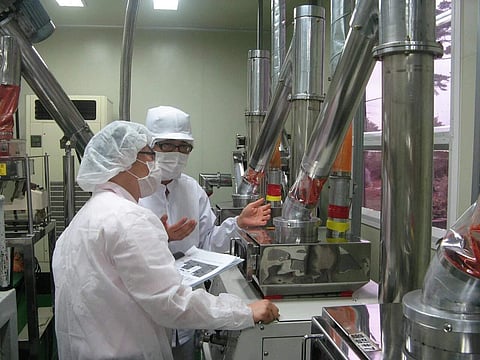

B Vocational Degree in Food Processing Technology introduced in PVKN Government College (Autonomous), in Andhra Pradesh's Chittoor has been giving good hope to the umemployed youth in the region. Students who have been pursuing the Food Processing Technology course has been getting opportunities from the local industries after completing their first semester.
The course was flagged off under the National Skills Qualification Framework (NSQF) from the academic year 2020-21. Around 19 students have been pursuing the course in the college. In fact, the course has multiple exit options where students can get a certificate course in Food Processing Technology after completing their first semester with NSQF level IV certificate. Diploma in Food Processing Technology would be given students after completing their IInd semester in I year of BVoc. After completing their IV semester in IInd year, students can get their Adanced Diploma in Food Processing Technology.
Chittoor district is famous for the productions of vegetables and variety of fruits like mangoes, papaya and guava. Chittoor is surrounded by more than 50 fruit processing units generating a turnover of Rs 120 to 150 crore per year, which requires more than 10,000 employees, both skilled and unskilled, every year. Due to lack of skilled persons, processing units in the region have been recruited skilled workers from other states. With this many of the youth of Chittoor district are forced to migrate to nearby cities such as Bengaluru, Chennai for getting employment opportunities.
Infact, the climatic conditions of Chittoor is very suitable for the production of mangoes (10 lakh tonnes per year), tomatoes (15 lakhs tonnes per annum) and variety of cegetables, poultry and dairy. Faculty of the College headed by the Principal Dr G Ananda Reddy has been playing active role in giving guidance to students. The college has signed around 20 active MOUs with various industries for curriculum design, industrial training and visits, research and development, skill development programmes, guest lectures, faculty development programmes, student internships, placement of trained students.
"Due to mismatch between demand and supply in higher education, knowledge and skills are required for diverse forms of employability skills in order to bridge the knowledge and skill gap. In view of this, University Grants Commission implemented NSQF in order to achieve the objectives and expected outcomes of skill based education. As a part of NSQF programme guidelines, we have started BVocational in Food Processing Technology during the academic year 2020-21," said the Dr G Ananda Reddy, Principal, PVKN college.
He insisted for more internships and updation of syllabus, keeping in view of local demands and industry needs. As per NSQF Framework, every college need to incorporate and update curriculum based on industrial needs and local demands, added the Principal.Very recently, the college has organised an Industry-Academia interaction programme. The main aim of the programme is to collect feedback from the local industries on their requirements for skilled workers.
Based on the suggestions given by the managements and representatives of the company, the college has been working and planning to mould the programmes for providing skilled employees to the local firms from the college. Coordinator Dr Mohan Behara who was also played a key role in making the MoUs with industries have been updating the students as per the requirements of the local industries. The college has also been organising Board of Studies where one of the person from Industries and Professors from SV University also joined in the meeting to calculate the requirements of the industries.
"There are 9 domains in the entire Food Processing Technology course which gives perfection to students in all streams. 70 percent of Skill component and 30 percent of General Education will be imparted to students during the three years. Students can become entrepreneurs after pursuing the three years course. They can able to give a detailed project report on Processing Technology of any industry after the completion of course. Students have been getting good opportunities right from the campus itself while they are pursuing the course," said Doctor Mohan Behara, Professor and programme co-ordinator to Industry-Academia Interaction programme.
